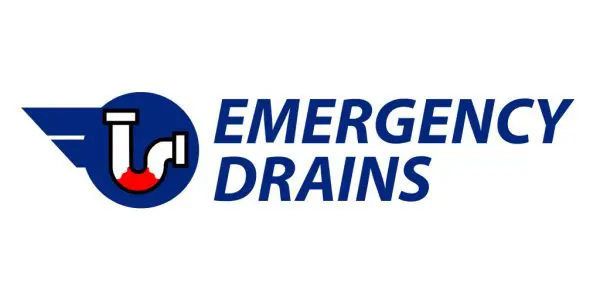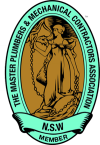Have you ever wondered why your kitchen sink seems to be taking its sweet time to drain? Or perhaps you’ve experienced the unpleasant surprise of water pooling around your feet in the shower? If so, you’re not alone. Blocked drains in Sydney can be a common problem for its residents, and there’s a culprit that often goes unnoticed – grease. In this article, we’ll explore the reasons why grease and drains don’t mix well, causing headaches for homeowners and businesses alike.
Why Can’t Grease Go Down the Drain?
Understanding plumbing might feel puzzling to some, but one thing is clear – grease and drains don’t make good bedfellows. Unlike water or other liquids, grease has a distinct property. When it encounters cooler surfaces, like the walls of your pipes, it changes its form. Instead of smoothly flowing through the plumbing system, grease solidifies into a sticky, congealed mess. This transformation is the root cause of blocked drains. As the grease accumulates over time, it creates a barrier that restricts the flow of water, leading to blocked drains in Sydney and other drainage problems that can escalate if left unaddressed.
Blocked drains don’t just affect the immediate area; they can have a domino effect on your entire plumbing system. When grease accumulates, it creates a breeding ground for other debris, such as food particles and soap scum, to get caught in the sticky mess. This buildup not only leads to clogs but can also result in unpleasant odours coming from your drains. It’s a scenario that no homeowner or business owner wants to face.
What Will Dissolve Grease in a Drain?
When faced with blocked drains in Sydney, the natural instinct might be to reach for a quick fix – a store-bought drain cleaner that promises to dissolve everything in its path. However, not all solutions are created equal, and some can do more harm than good. While certain commercial drain cleaners contain potent chemicals, they might not be the silver bullet for grease buildup. In fact, these chemicals can be harsh on your pipes and the environment.
A more effective and eco-friendly approach involves utilising natural agents to dissolve grease. One tried-and-true method is using a mixture of baking soda and vinegar. Pouring baking soda down the drain followed by a cup of vinegar creates a fizzy reaction that can help break down grease and other debris.
For preventative measures, regularly flushing your drains with hot water can also prove beneficial. Hot water works to melt and wash away greasy residues, which helps maintain the smooth flow of water through your pipes.
It’s important to note that for persistent blockages or severe issues, seeking the expertise of professional plumbers is the safest and most reliable option. They possess the knowledge and tools to assess the situation, providing targeted solutions that address the root cause of the problem.
Tips for Disposing of Cooking Grease
Cooking up a storm in the kitchen is a delight, but what about the aftermath? When it comes to disposing of cooking grease, it’s essential to adopt responsible practices to prevent blocked drains in Sydney and keep your plumbing in top shape. Here are some simple yet effective tips to help you deal with cooking grease responsibly:
-
Cool Before You Dispose
It’s tempting to pour hot cooking grease down the drain, especially when you’re in a hurry to clean up. However, this is a recipe for disaster. Allow the grease to cool and solidify before disposal. This makes it easier to collect and prevents it from adhering to the walls of your pipes.
-
Use a Grease Container
Invest in a designated container for collecting cooking grease. This could be an old jar or a metal can with a secure lid. Pour the cooled grease into the container, and once it’s full, dispose of it in the trash. This simple step can save you from future plumbing headaches.
-
Scrape, Don’t Rinse
Before washing your dishes, take a moment to scrape off excess grease and food particles into the trash. This reduces the amount of grease that makes its way into your drains and minimises the risk of blockages.
-
Wipe Greasy Utensils
Instead of rinsing greasy pans and utensils under hot water, use a paper towel to wipe off the excess grease. This helps in removing the majority of the grease before washing, preventing it from entering your drains.
-
Hot Water Flush
Pouring hot water down your kitchen sink on a regular basis can help melt and flush away any residual grease. This simple practice is an easy way to maintain the smooth flow of water through your pipes.
-
Dispose of Grease Responsibly
When it’s time to dispose of your grease container, remember not to pour it down the drain or toss it in the trash bin as is. Seal the container tightly and throw it away in the garbage. Some localities also have specific guidelines for grease disposal, so be sure to check with your waste management authority.
By incorporating these tips into your kitchen routine, you not only contribute to the longevity of your plumbing system but also play a part in environmental conservation. Responsible grease disposal is a small effort that goes a long way in maintaining a healthy and blockage-free drainage system in your Sydney home or business.
Emergency Drains: Your Local Trusted Sydney Plumbers
Blocked drains can disrupt the smooth functioning of your home or business, causing inconvenience and potential damage to your plumbing system. At Emergency Drains, we specialise in tackling such challenges head-on. Whether it’s understanding why grease and drains don’t mix or implementing effective solutions to dissolve grease buildup, our team of experienced and friendly plumbers is here for you.
We prioritise customer satisfaction and efficient service, which ensures that your blocked drain issues are resolved promptly. Don’t let grease wreak havoc on your plumbing – trust Emergency Drains, your local and trusted Sydney plumbers, to keep your drains flowing smoothly. Call us on 1300 524 474 for reliable and professional plumbing solutions tailored to your needs.



